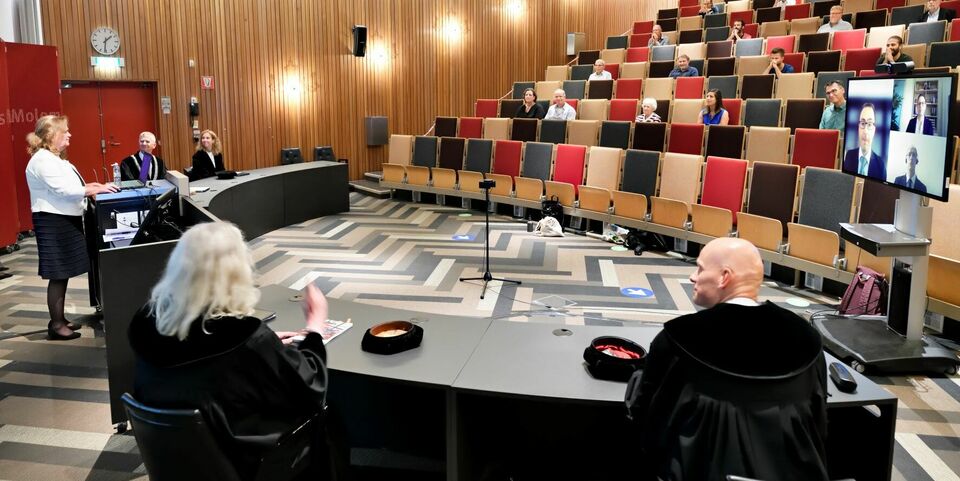Until 2017, the right to confer doctorates was reserved for full professors only. Now assistant and associate professors are also permitted to fulfil this role. This week, an evaluation of the expanded right of conferral was issued.
Delft University of Technology and Maastricht University are among the universities who have granted most non-(full)professors the so-called ius promovendi, while Tilburg University, Erasmus University Rotterdam and the Open University grant this right of conferral to relatively few non-(full)professors. At TU/e 120 associate professors had been given this right in 2020, twice as many as in 2017. This is due to the fact that from 2018 the ius promovendi can be granted not only to "associate professors rank 1", but also to "associate professors rank 2".
Intensive supervision
One element the evaluators looked at was the quality of the supervision of PhD students. That has not declined. They argue that increasing the number of people who are entitled to confer doctorates actually offers opportunities. The specific expertise that comes with conferring a doctorate can for example lead to “more focused and more intensive supervision”.
It is not known whether the expansion has also caused an influx of assistant and associate professors from abroad. Personal considerations and the quality of the academic system are more significant reasons for researchers to continue their career in the Netherlands. Universities do, however, feel “supported in their recruitment policy” now that they can offer more job applicants the right to confer doctorates.
Sweetener
Many of the assistant and associate professors interviewed see the formal recognition for their work as supervisor as the principal “direct impact” of the extended right of conferral. They say this is part and parcel of the new emphasis on ‘recognition and reward’. This shift means they are no longer solely assessed on their own research, but greater attention is paid to their achievements in teaching, management and therefore also the supervision of PhD students.
A variety of opinions about the expansion emerge from the interviews. While some assistant and associate professors regard the right to confer doctorates as a career step, others see it as a ‘sweetener’ – a minor concession designed to keep them happy. In their view, it “might cause a delay” to a future promotion to professor because it introduces an intermediate step in their career. Some assistant and associate professors therefore say they do not plan to apply for the right of conferral and would prefer to go straight for a full professorship.
Cooperation
The evaluators also make a number of recommendations to the education minister. In their view it is important for the quality of the supervision to be more transparent. That information could be very useful in “the discussions on recognition and reward”.
Furthermore, the evaluators say, it is essential to introduce clear standards for the right to confer doctorates. Maastricht University, for example, grants the right of conferral “generically” to associate professors, while the University of Amsterdam also grants it to assistant professors “in exceptional cases”.
If universities continue to apply different rules, the “cooperation and mobility between universities” could become more difficult, the evaluators argue. Education Minister Robbert Dijkgraaf has already announced that he is going to act on the recommendations.



Discussion